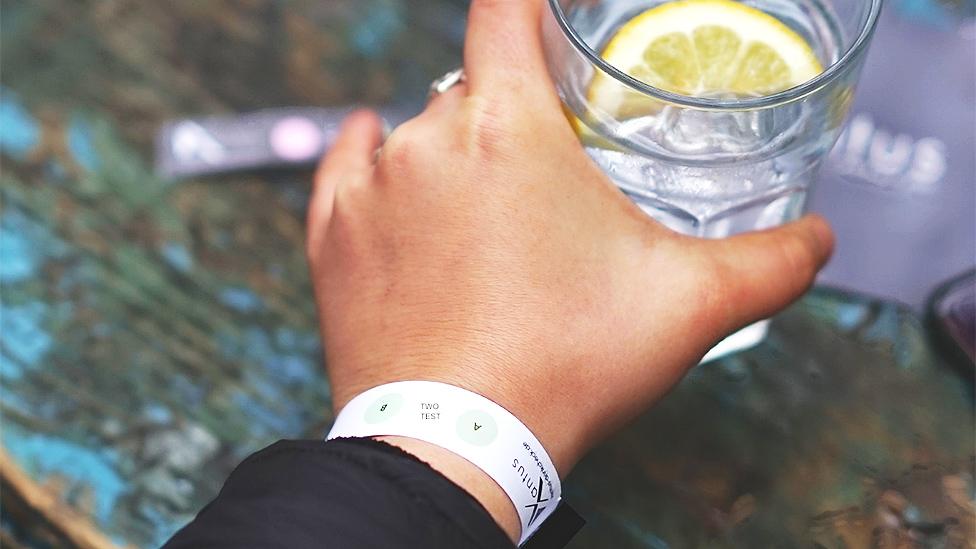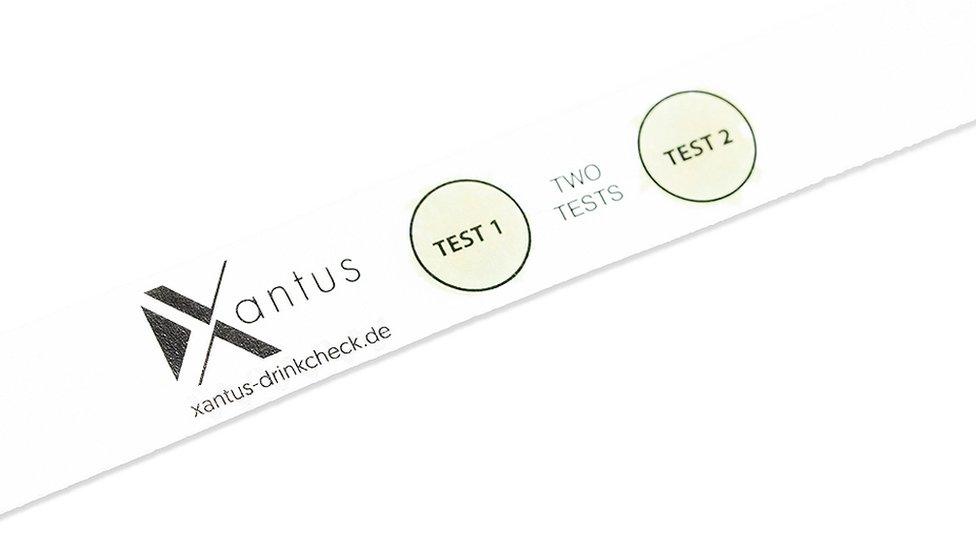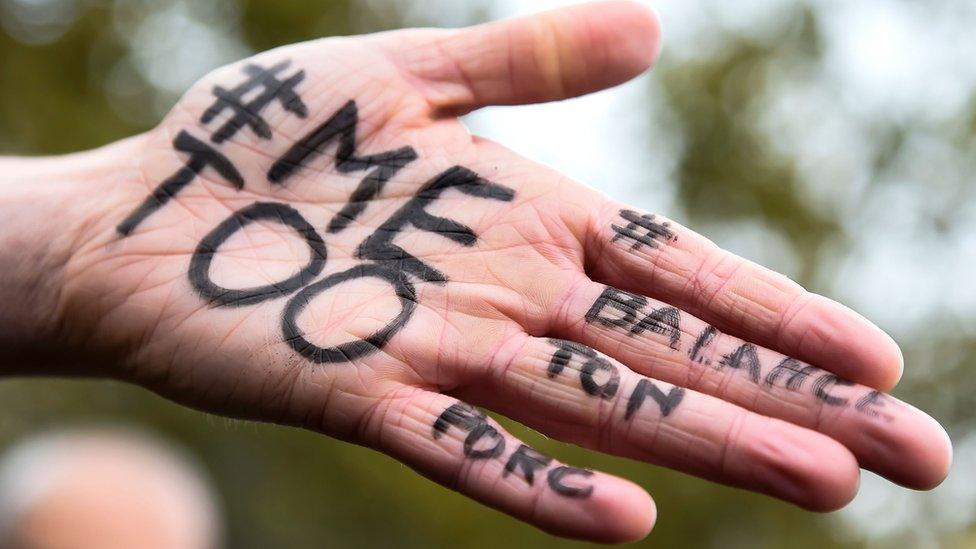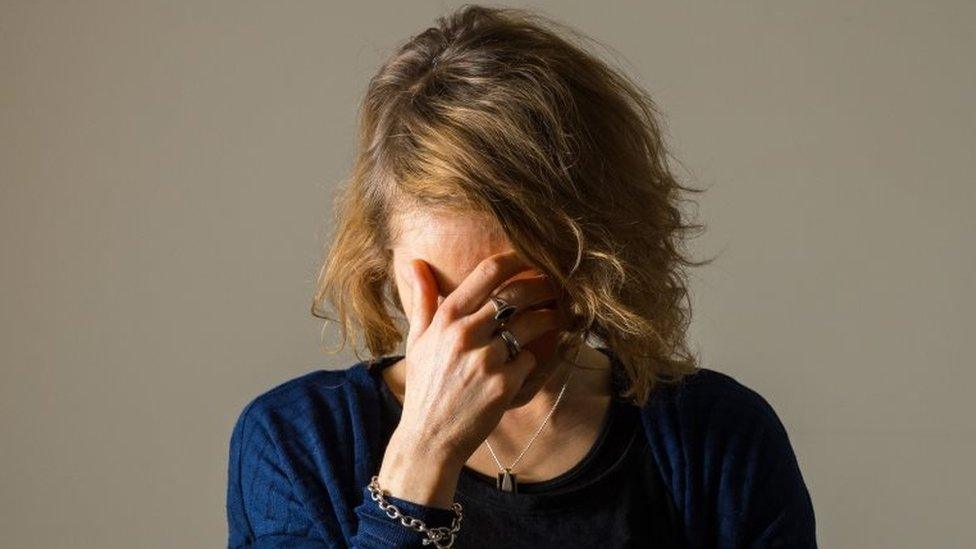How this date rape wristband can tell if your drink has been spiked
- Published

A wristband that lets wearers check if their drink has been spiked with a date rape drug has gone on sale in Germany.
And its creator, Kim Eisenmann says she wants to bring it to the UK as well.
She invented the Xantus Drinkcheck Band after someone she knew was drugged and assaulted.
Last summer 25-year-old Kim went to a festival with friends. The day after, she was told a girl, who was part of her social circle, was found naked and hurt in a city park.
Police said she'd been the victim of a date rape drug.
"This got my partner Sven Hauser and I thinking that date rape drugs are a bad thing, and there must be something to protect yourself," Kim tells BBC Radio 1 Newsbeat.
"We started to do some research. We heard about different products but there was nothing that could really help. This is how we started developing this product."

Kim worked on the wristband with her partner after a friend had her drink spiked
Kim, who is one of the founders of Xantus started working on the wristband which tests for GHB after her friend's experience of having her drink spiked.
GHB is an illegal drug which can result in feelings of euphoria in users, but causes dizziness and drowsiness in higher doses and can be fatal when mixed with alcohol.
When Kim chatted to people about her project she realised many had been affected by date rape drugs in her home country.
"In Germany drink spiking is a really big problem almost everybody knows somebody who has had experiences of a date rape drug," she says.
"As we started talking to other people it was crazy that almost everyone had a story."
How the wristband works
To use the wristband users stir their drink with a straw.
They then place a few drops on the white band and wait two minutes, if the test area turns blue they know their drink has been spiked.
Kim says that it is already having a positive impact on young women's lives.
"We donated some to a group of girls and they told me that they really like the wristbands. It makes them feel more aware and more safe.
"I also gave a girl a wristband and afterwards she was in conversation with a boy at a party and he asked her what it was.
"She told him 'it's a wristband that protects me from date rape drugs' and he was like 'wow' and he stepped back. She said it made her feel very strong."

The Xantus Drinkcheck Band is only available in Germany for now
Kim hopes the wristband will also help to deter potential offenders.
"Offenders see this girl wears a wristband it's likely she can test her drink. If I spike it and give it to her, I can get in trouble," she says.
'It won't happen to me'
Kim feels that awareness is the key to young people staying safe while drinking and she chooses to wear her wristband on nights out.
"The biggest problem with drink spiking is that everyone thinks 'it won't happen to me' it happens to other people, but not to me.
"What happened to the girl at the festival felt so close to me. As if this could have happened to me and, I realised the danger so of course I have the wristband with me when I go out."
Eventually Kim would like to make products which can detect other drugs.
She'd also like to trial her wristband in other countries and her plan is to bring it to Britain to help potential victims avoid being drugged.


Follow Newsbeat on Instagram, external, Facebook, external, Twitter, external and YouTube, external.
Listen to Newsbeat live at 12:45 and 17:45 every weekday on BBC Radio 1 and 1Xtra - if you miss us you can listen back here.
- Published12 April 2019

- Published6 December 2018

- Published6 December 2018
